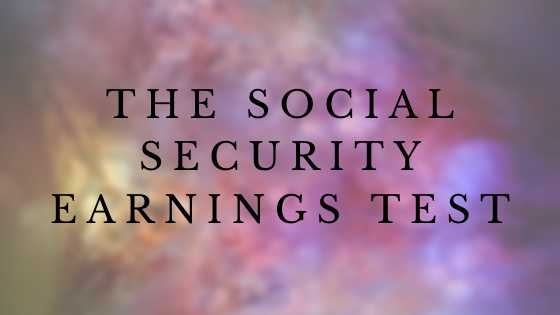
Take This Quiz: The Social Security Retirement Earnings Test
Can you work and receive Social Security retirement benefits at the same time? Yes, but the Social Security Administration (SSA) will apply an earnings test. Part or all of your monthly benefit may be withheld if you earn too much.
To help avoid surprises, take this quiz to find out what you know — and don’t know — about Social Security earnings test rules.
Questions
The retirement earnings test applies only if you are receiving Social Security benefits and are…
Under age 62
Under full retirement age
Full retirement age or older
Age 70 or older
Which of the following types of income count toward the earnings test?
Wages earned as an employee and net self-employment income
Pension and retirement plan income
Interest and dividends
Both a and b
All of the above
Benefits that are withheld are lost forever.
True
False
The earnings test may affect family members who are receiving which types of benefits?
Disability benefits
Spousal benefits
Dependent benefits
Both b and c
What special rule applies to earnings for one year, usually the first year you claim Social Security retirement benefits?
A monthly earnings limit applies to any earnings after you claim retirement benefits.
Earnings during the first year after you claim retirement benefits can’t be counted if you retired after 40 years of continuous employment.
Earnings during the first year after you claim retirement benefits will not reduce your Social Security benefit if you retired from a government job.
Answers
- b.If you have not yet reached full retirement age (66 to 67, depending on your year of birth), your Social Security retirement benefit may be reduced if you earn more than a certain annual amount.
In 2020, $1 in benefits will be deducted for every $2 you earn above $18,240. In the calendar year in which you reach your full retirement age, a higher limit applies. In 2020, $1 in benefits will be deducted for every $3 you earn above $48,600. Once you reach full retirement age, your earnings will not affect your Social Security benefit.
The SSA may withhold benefits as soon as it determines that your earnings are on track to surpass the annual limit. The estimated amount will typically be deducted from your monthly benefit in full, so you might not receive benefits for one or more months before they resume.
- a.Only earned income, such as wages from an employer and net self-employment income, count toward the earnings limit. Unearned income — such as other government benefits, investment earnings, interest, pension and retirement plan distributions, annuities, and capital gains — doesn’t count.
- b.Benefits that are withheld are not really lost. Your benefit will be recalculated at full retirement age to account for the months benefits were withheld. You’ll receive the higher benefit for the rest of your life, so assuming you live long enough, you’ll eventually recoup the total amount you previously “lost.”
- d.Benefits paid to family members (such as your spouse or dependent children) based on your earnings record may also be reduced if you’re subject to the earnings test. The earnings test does not apply to disability insurance benefits.
- a.Many people retire mid-year and have already earned more than the earnings limit. So in the first year you claim retirement benefits, a monthly earnings test may apply, regardless of your annual earnings.
For example, let’s say that you claim benefits at age 62 on September 30, 2020 and have already earned more than the 2020 earnings limit of $18,240. Then, you take a part-time job that pays you $1,000 per month for the rest of the year. You’ll still receive a Social Security benefit for October, November, and December because your earnings are less than $1,520, the monthly limit that applies in 2020.
Prepared by Broadridge Investor Communication Solutions, Inc. Copyright 2019 The opinions voiced in this material are for general information only and are not intended to provide specific advice or recommendations for any individual. To determine which investment(s) may be appropriate for you, consult your financial advisor prior to investing. All performance referenced is historical and is no guarantee of future results. All indices are unmanaged and cannot be invested into directly. The tax information provided is not intended to be a substitute for specific individualized tax planning advice. We suggest that you consult with a qualified tax advisor.

